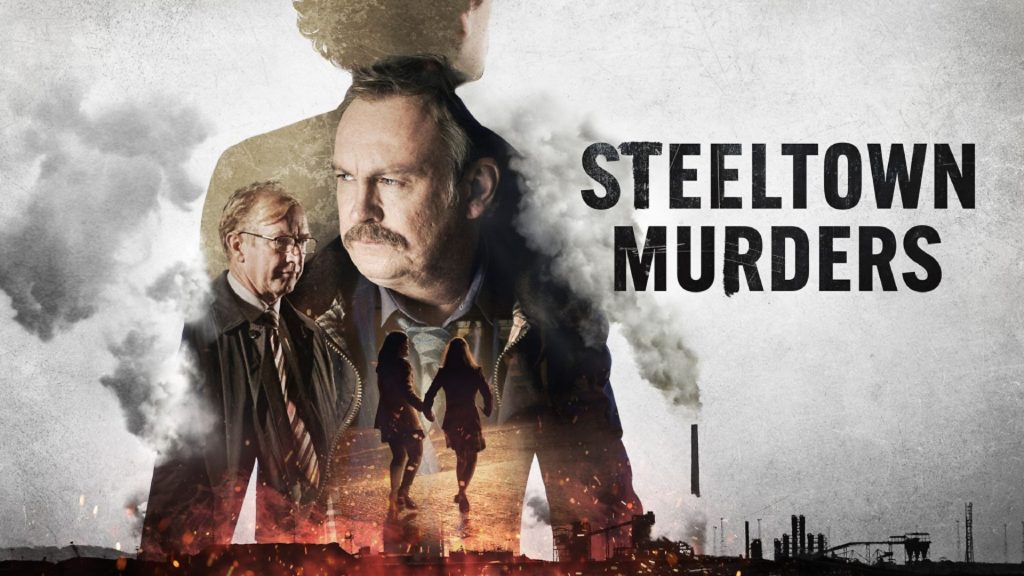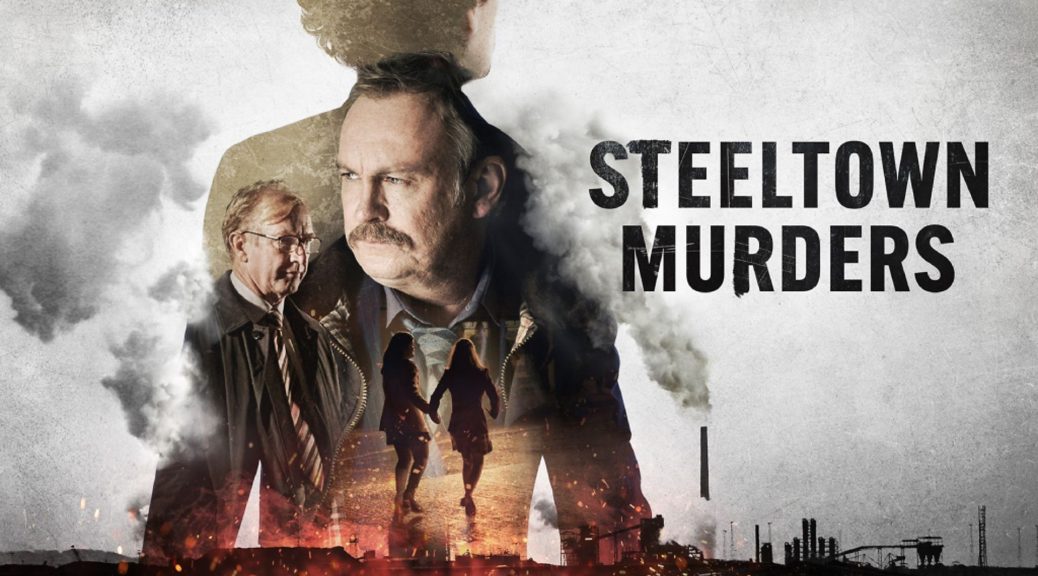
 (4 / 5)
(4 / 5)
Steeltown Murders may be yet another Welsh drama in the ever-popular crime genre, but it is very well done on the whole. Telling the true story of how DNA was used in a pioneering way to solve a cold case in Port Talbot, it flits between the 1973 setting of the murders of three girls and the early 2000s with ease. Starring Philip Glenister, whose accent was nicely perfected through immersion into his Welsh roots, alongside Steffan Rhodri, who play the chief investigating officers, it is a drama that is understated, and effective as a result. Verisimilitude permeates its presentation, and is its greatest strength.
The aesthetic is beige and brown, particularly in its 1970s scenes. The “present” day has a drop more colour but remains blunted by a noirish sensibility. It suits the story and the location well, the unsolved murders hanging over the families and wider community like the smoke from the factories. When music is used, it is in a typically melodramatic way, especially over highly emotional scenes and end-of-episode montages featuring the various characters that come into play. The cast is large, a result of spanning over two timelines partly, but even when each is considered separately, Steeltown Murders feels like an ensemble rather than a two-man show. Glenister’s DCI Paul Bethall is well-drawn – strong-willed, single-minded, haunted by the past – as is Rhodri’s DC Phil Bach – dry-humoured, attentive, poised. But even bit-part characters such as Seb, played by Matthew Gravelle, husband to Sita (Natasha Vasandani), who was two of the girls’ friend, is complete enough to add real weight to the narrative, particularly in its final episode. Whether this is down to its basis in real events, and therefore people, is open to question but, even in spite of this, every actor appears to embody their character with respective heart and attentiveness.
There is the slight criticism towards exposition, and explanation of the forensic and scientific methods that sound plainly for the audience’s benefit. This takes away slightly from its realism which is nevertheless strengthened by the localised accents on show and a bilingualism which, though under-used, was still welcome insofar as representation is concerned. Never for a moment can Glenister be thought of as merely a star signing, his commitment to the role and the overall drama depicted as much in Bethall’s seriousness as his relationship with Steffan Rhodri. The two make a great pairing, sparring off one another with an ease and respect that lightens the dark tone of the narrative. They never dominate the screen however, meaning that the case itself always takes centre-stage even when their part in it is pivotal.
This four-part drama may not be ground-breaking in-and-of itself but Steeltown Murders does tell a ground-breaking story of how DNA technology was used to catch a killer. As such, it is simple but effective; good at what it does, without breaking any new ground.
Click here to watch the series on BBC iPlayer.

Gareth Williams

